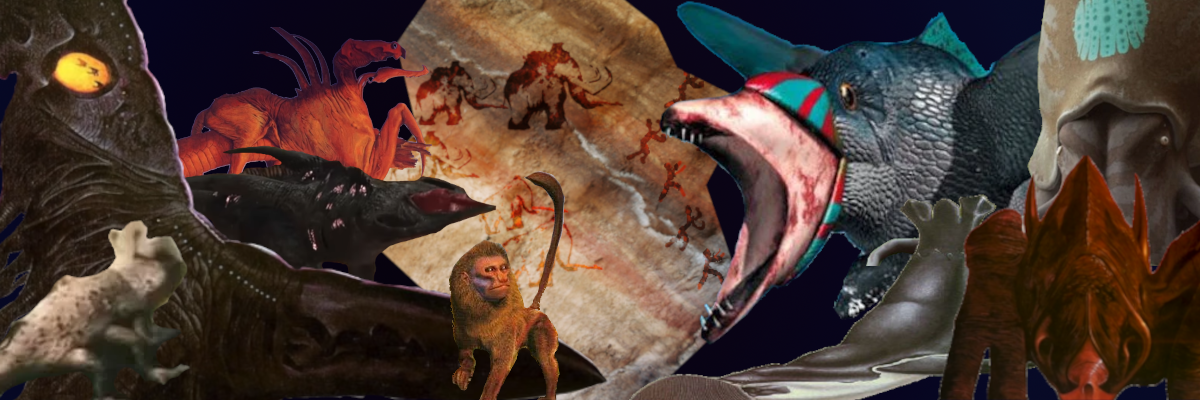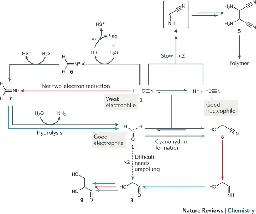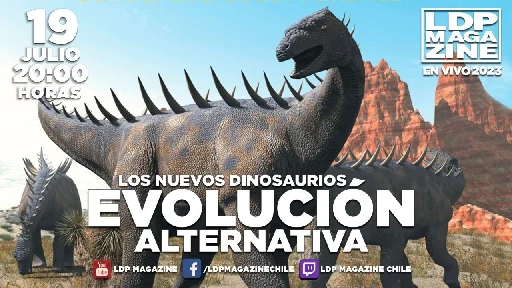
Speculative Evolution
- Opinion: Studies on the origin of life — the end of the beginning - Nature Reviews Chemistrywww.nature.com Opinion: Studies on the origin of life — the end of the beginning - Nature Reviews Chemistry
Recent developments in systems chemistry have shown how the molecular building blocks of life could have arisen from plausible prebiotic feedstocks. This Perspective argues that we remain a long way from a full picture and speculates on what pieces of the puzzle are still missing.

Great info if you're interested in the state of the art on how abiogenesis might work.
I also didn't realise LUCA was so sophisticated already until I read this. The story it tells is that very basic life was already widespread in the Hadean era, and when the late heavy bombardment hit and the Earth was resurfaced, only life around a hydrothermal vent (or vents) survived, with one long-term survivor going on to become the sole ancestor of modern life.
(If you don't have institutional credentials, there is a pirate website by the name of "sci-hub", with the dash. No endorsement but it's not like you were ever going to pay 40 bucks to read this)
- There's a live about Dougal Dixon's Book on alternative dinosaur evolution (in spanish)

YouTube Video
Click to view this content.
A couple of paleo fans are talkin in spanish about this interesting topic
- Banner Idea
Could somebody make a cave painting of an intelligent "woolly mammoth" attacking a troop of apes? I think that would be really cool for this community. Stable Diffusion Online didn't seem to get it, at least not with my prompt.
Edit: I'm picturing a hunting scene a bit like this. Pottery art would also work.
- Neolithic Electricity and Marine Aliens
Originally posted on Reddit. I'm wondering if I should write a discussion on creatures living in the interior of a planet discovering space and the wider universe, too.
--------------------
Neolithic civilizations existed on Earth. The Polynesians until European contact and the Cucuteni–Trypillians in 4000 BC Romania are good examples. The Easter Island Polynesians even invented writing. It's hard to build an underwater blast furnace, though, which has been claimed to prevent aquatic creatures from progressing further.
Well, if we also assume that these creatures are electroceptive like rays, I think it's likely their equivalent to alchemists (people with the leisure and interest to mess with chemical reactions who manage to form a community) would find solid materials that "look" like seawater. If they aren't electroceptive they would either need conductive natural solids or building their first circuits would be much more of a freak event.
If they have access to hot temperatures, they could coke coal (or silicon "coal" if they're silicon based) fairly easily. Otherwise, it would be a conductive polymer of some sort. Once you have a conductive solid to transport electrons and an electrolyte to transport ions, you can do electrochemistry, which would be discovered at some point afterwards.
Electrochemistry can be used to make various circuits like telegraphs, but can also be used to electrolytically produce metals. At high pressures a lot more is soluble so that's extra relevant for creatures in the deep sea. Now, once we have metal they obviously can do a lot of the same things we can.
All in all, I think this is a compelling reason why sea creatures could industrialize and eventually interact beyond their planet.